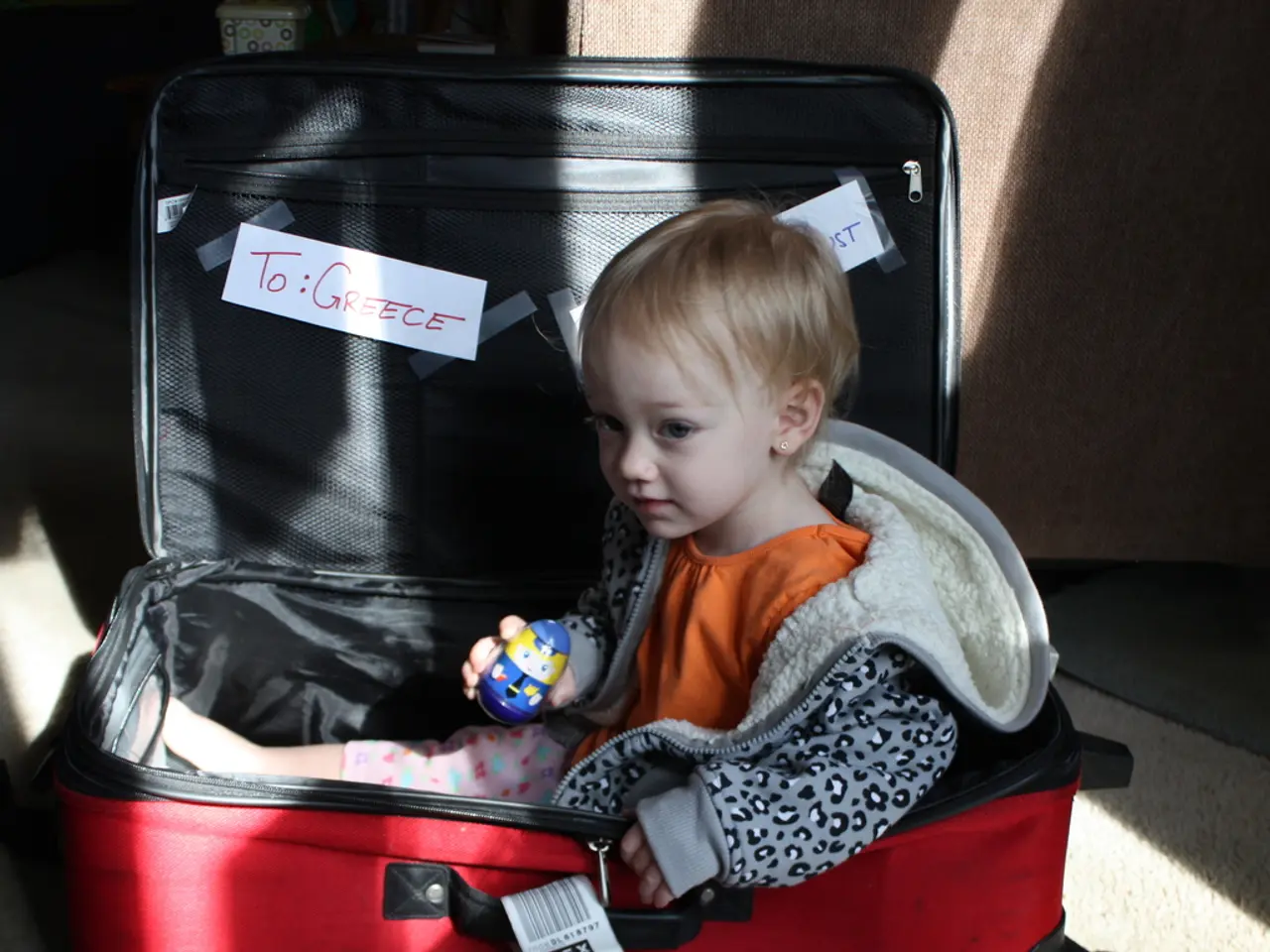Slovenia prohibits goods originating from Israeli settlements deemed illegal, in response to the ongoing humanitarian predicament in Gaza
In a significant move, Slovenia has become the first European country to ban the import of goods from illegal Israeli settlements in the occupied West Bank, marking a significant expansion of international sanctions against Israeli settlements and related military goods.
The ban, announced by Slovenian Foreign Minister Tanja Fajon, is a "necessary response to the ongoing humanitarian and security situation in Gaza." The decision comes amidst a series of escalating conflicts in Gaza, with the Israeli government's offensive resulting in the death of over 60,200 Palestinians since October 7, 2023, and causing severe food shortages.
Slovenia's ban follows a long-standing criticism of Israel's military campaign and its conduct in Gaza. The country has consistently spoken out against Israel's actions and, in June 2024, passed a decree recognizing Palestinian statehood.
The international sanctions regime against Israeli settlements and related military goods has seen a marked expansion and increased intensity in 2025. The United States under the Biden administration has resumed and extended sanctions against Israeli settlers and settlement entities, targeting individuals including high-profile ministers such as Bezalel Smotrich and Itamar Ben-Gvir. This approach contrasts with the prior Trump administration, which canceled earlier sanctions programs.
Other countries, including Australia, Canada, Norway, and the United Kingdom, have also imposed sanctions on Israeli settlers and officials linked to settlement expansion and violence in the West Bank. European Union members increasingly consider settlement activities illegal and an obstacle to peace, shaping their sanctions policies accordingly.
United Nations human rights experts have called on all states to take targeted measures, sanctions, and diplomatic pressure to halt Israeli state and settler violence in the West Bank. They emphasize complying with international law, including advisory opinions from the International Court of Justice, and have highlighted the severe economic damage settlements have caused in Palestinian territories.
The economic impact of Israeli settlement activities and violence is significant. West Bank GDP reportedly declined by over 19% and unemployment rose to 35%, alongside millions of dollars in direct agricultural damages.
Israeli right-wing leaders, notably Finance Minister Bezalel Smotrich, continue to push plans to expand settlements such as Maale Adumim, provoking strong international condemnation and calls for further sanctions from Palestinian authorities and Arab nations.
Despite the increasing isolation, international response remains uneven. Critics point to the US government’s ongoing complicity and the lack of broad multilateral enforcement as factors impeding effective accountability.
In addition to the ban on imports of goods from Israeli settlements, Slovenia has also prohibited the import, export, and transit of weapons and military equipment to and from Israel, making it the first European country to do so. The Slovenian government is reviewing a ban on exports of goods from Slovenia "destined for [the] illegal settlements." The government considers the actions of the Israeli government to be "serious and repeated violations of international humanitarian law."
Canada plans to recognize Palestinian statehood at the United Nations in September, following Slovenia's lead. The violations include the construction of illegal settlements, expropriations, and forced evictions of the Palestinian population. The hope is that these actions will contribute to a peaceful resolution of the conflict and the protection of Palestinian rights.
- The government of Turkiye, following the footsteps of Slovenia, is considering enacting a ban on the import of goods from Israeli settlements in the occupied West Bank.
- In the parliament of Russia, discussions are ongoing about implementing sanctions on individuals involved in settlement expansion and violence in the West Bank, mirroring actions taken by other European countries.
- The Slovenian government's decision to halt the export of goods to Israel destined for illegal settlements has received wide coverage in general news outlets across Europe and the world, setting a precedent for other countries to follow.
- The intensifying conflict in Gaza and the violence perpetrated by Israeli settlers has come under scrutiny in the realm of crime and justice, with calls for accountability and consequences for those breaking international law.
- The Turkish football federation, in solidarity with the Palestinian cause, has announced its intent to boycott Israeli teams in European leagues, including the Premier League, in the upcoming football seasons.
- Amidst the ongoing war-and-conflicts in the Middle East, accidents related to military operations in the West Bank have increased, raising concerns about the safety and security of civilian populations.
- In a move to protect its economy from the economic damage caused by Israeli settlement activities, the European Union is considering implementing a comprehensive policy-and-legislation against settlement goods, aligning with international law and the advisory opinions from the International Court of Justice.
- With the increasing number of accidents and humanitarian crises resulting from the ongoing conflict, leading global news outlets have dedicated significant coverage to the political instability in the region, examining the impact of politics, war-and-conflicts, and policy-and-legislation on the lives and livelihoods of people in the Middle East.






